
Find Help
More Items From Ergsy search
-

How is Marburg virus disease diagnosed?
Relevance: 100%
-
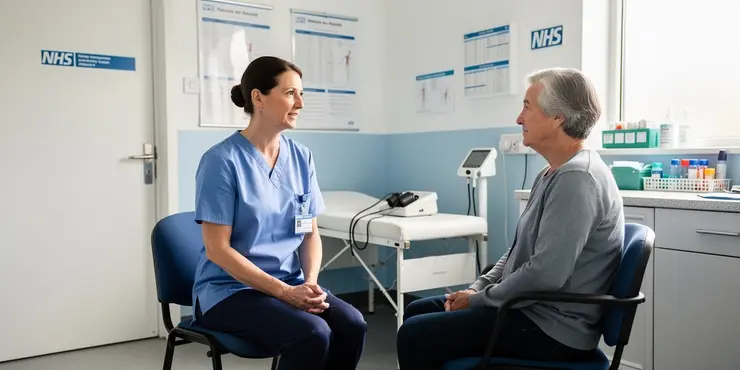
What are the symptoms of Marburg virus disease?
Relevance: 94%
-
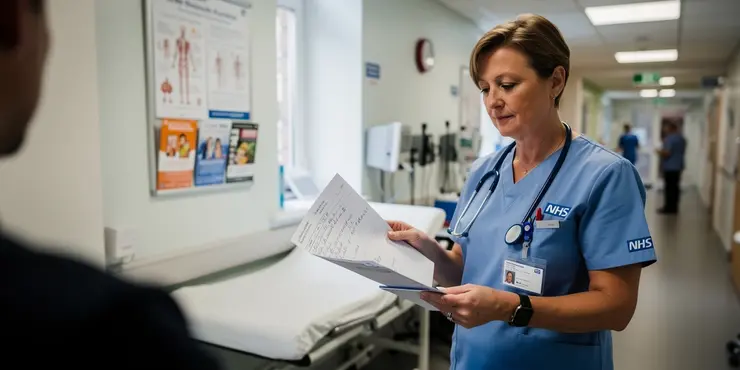
What is the typical progression of Marburg virus disease?
Relevance: 91%
-

What is the Marburg Virus?
Relevance: 91%
-
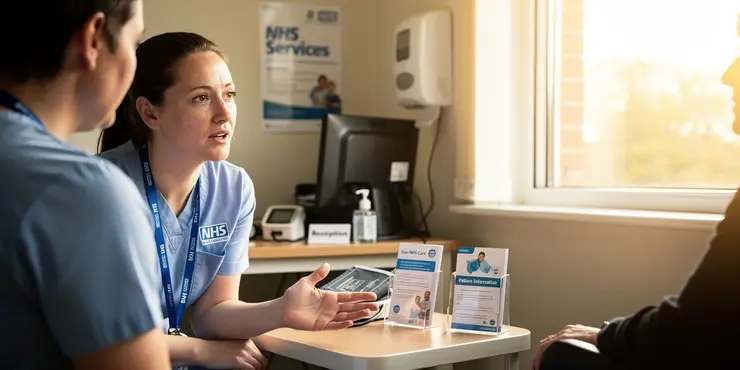
Can Marburg virus disease be prevented?
Relevance: 91%
-
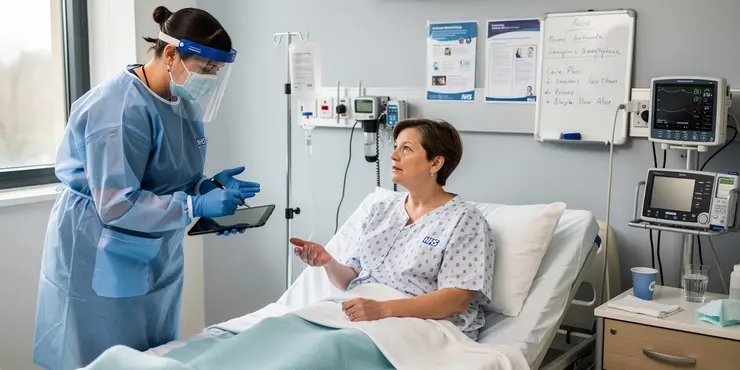
What is the mortality rate of Marburg virus disease?
Relevance: 90%
-
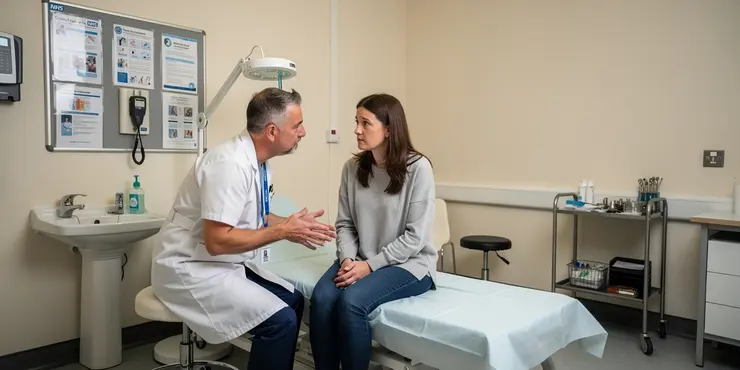
Can Marburg virus disease recur after recovery?
Relevance: 88%
-
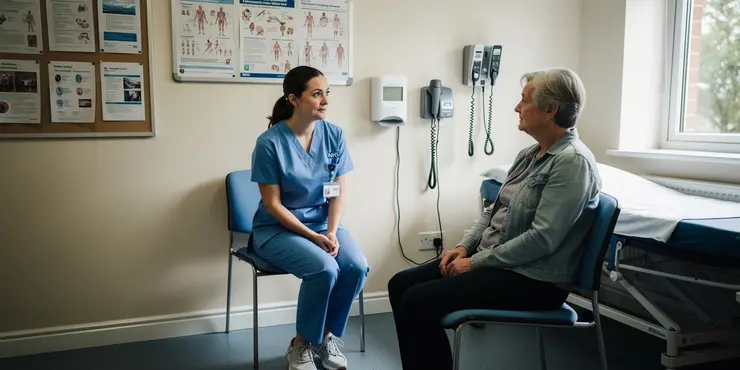
Is the Marburg virus related to the Ebola virus?
Relevance: 85%
-
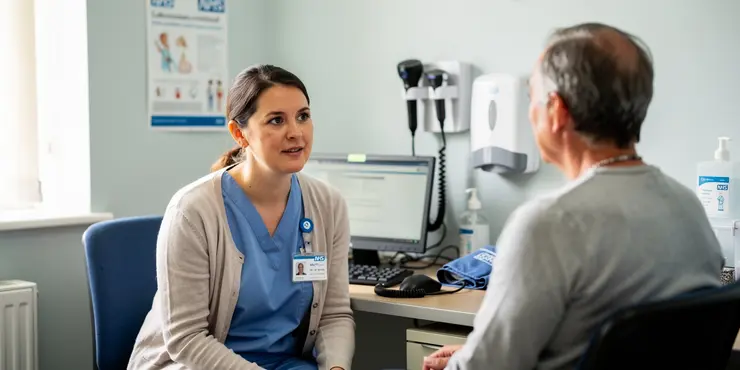
Is there a vaccine for Marburg virus?
Relevance: 80%
-

What research is being done on the Marburg virus?
Relevance: 79%
-
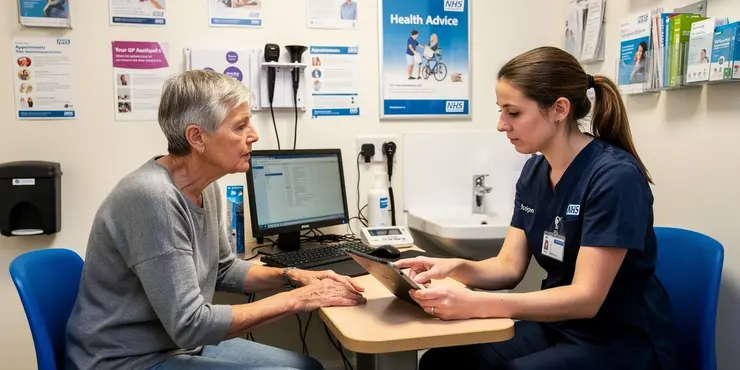
Where was the Marburg virus first discovered?
Relevance: 78%
-
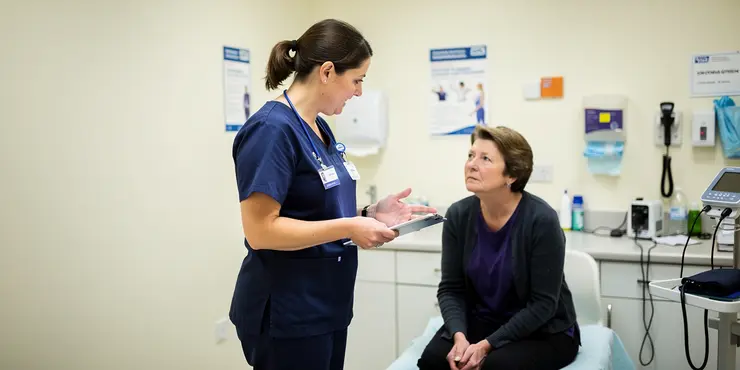
How is the Marburg virus transmitted?
Relevance: 78%
-

How long is the incubation period for the Marburg virus?
Relevance: 73%
-

How do health authorities confirm a Marburg virus outbreak?
Relevance: 73%
-

Are there any countries at higher risk for Marburg virus outbreaks?
Relevance: 72%
-

Has Marburg virus caused any major outbreaks?
Relevance: 72%
-
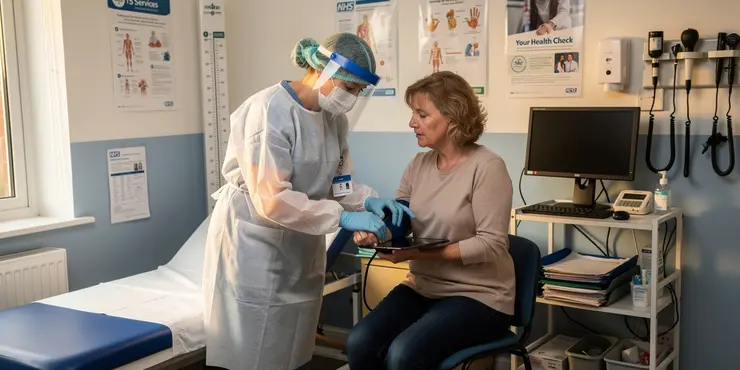
What measures are being taken to control Marburg virus outbreaks?
Relevance: 70%
-
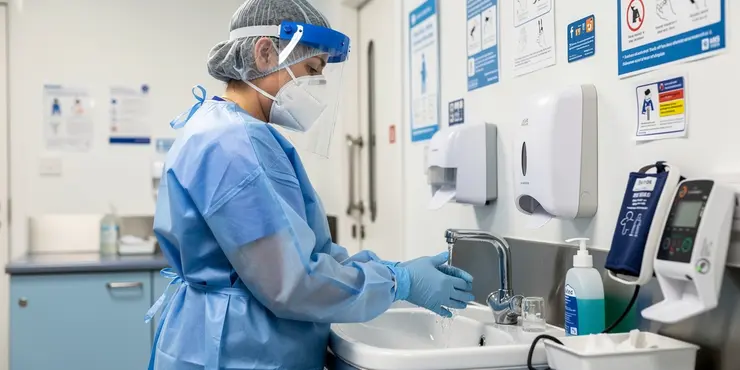
How can healthcare workers protect themselves from Marburg virus infection?
Relevance: 66%
-
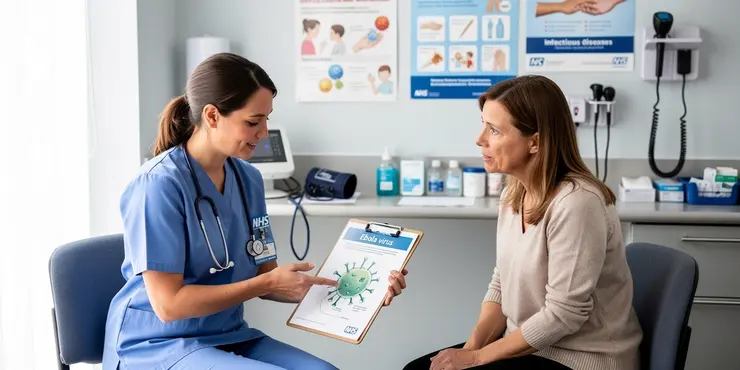
What is the Ebola virus?
Relevance: 42%
-
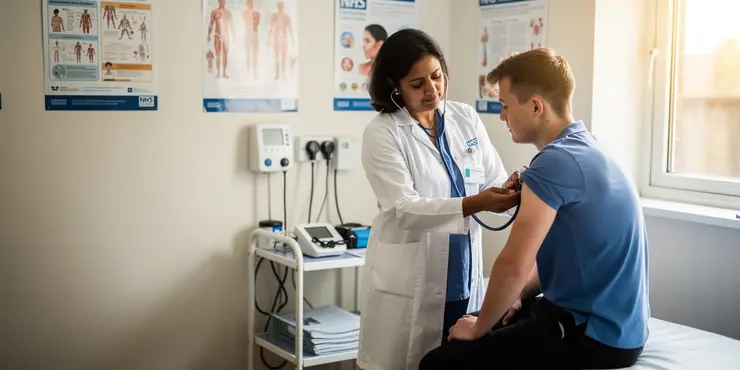
How is Chikungunya virus infection diagnosed?
Relevance: 42%
-

What are the treatment options for Marburg virus disease?
Relevance: 41%
-

How is Nipah Virus diagnosed?
Relevance: 41%
-
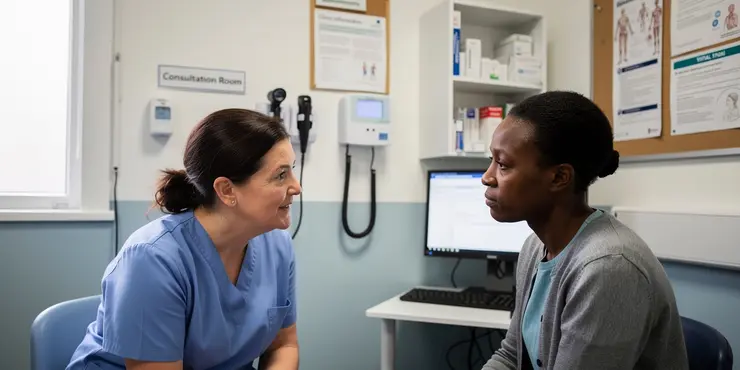
What is the life expectancy after a motor neurone disease diagnosis?
Relevance: 40%
-
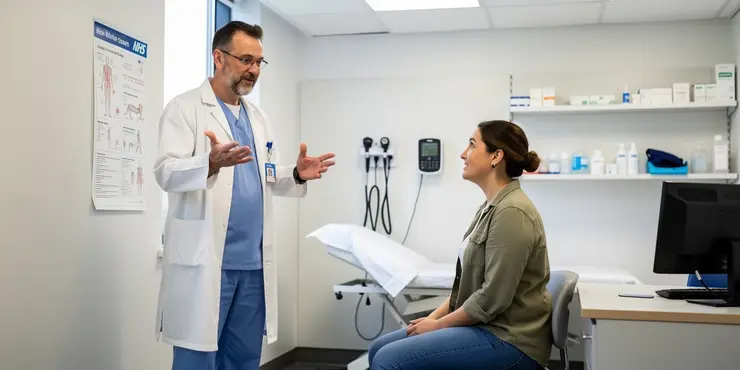
Are there treatments for West Nile Virus?
Relevance: 39%
-

What is Chikungunya virus infection?
Relevance: 37%
-

Is there a test for West Nile Virus?
Relevance: 35%
-
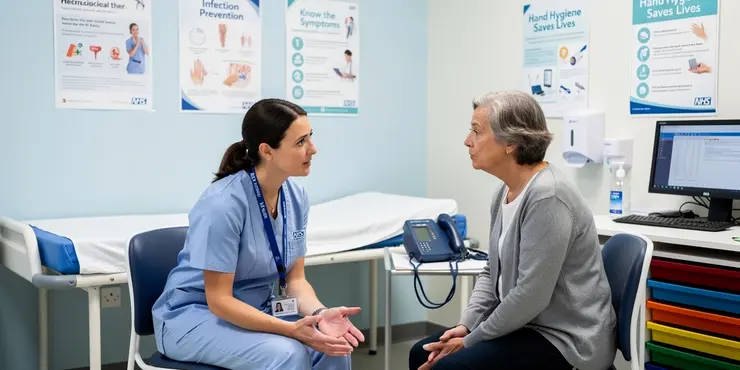
Can Nipah Virus cause neurological complications?
Relevance: 35%
-

What is Nipah Virus?
Relevance: 34%
-
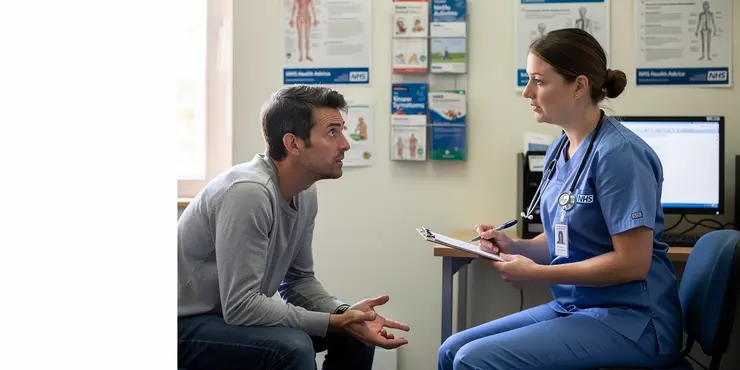
Is there a cure for Nipah Virus?
Relevance: 34%
-
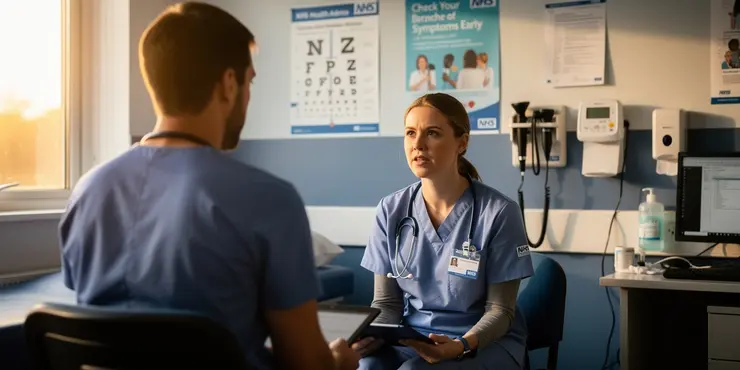
What are the symptoms of Nipah Virus infection?
Relevance: 33%
-

What is the mortality rate of Nipah Virus infection?
Relevance: 33%
-

What diseases are spread by mosquitos in the UK in 2025?
Relevance: 33%
-

How do health officials monitor West Nile Virus?
Relevance: 33%
-
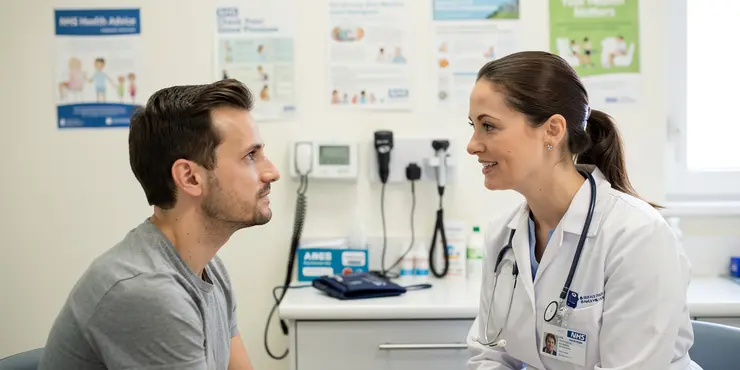
What is West Nile Virus?
Relevance: 33%
-

Are UK mosquitoes capable of transmitting Zika virus?
Relevance: 33%
-

What global organizations are involved in Nipah Virus research?
Relevance: 33%
-

Is there a vaccine for West Nile Virus?
Relevance: 32%
-
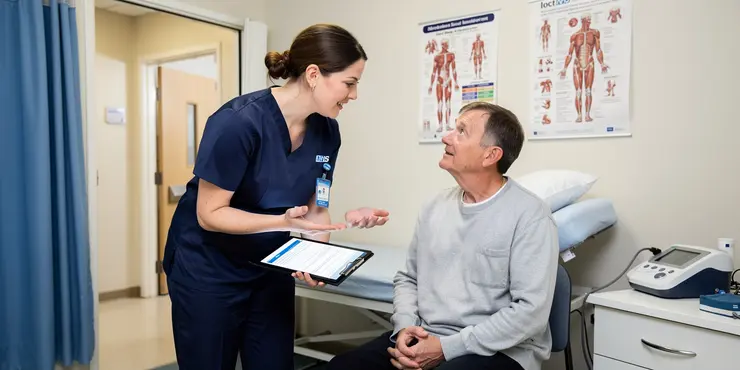
What are the symptoms of Zika virus?
Relevance: 32%
-
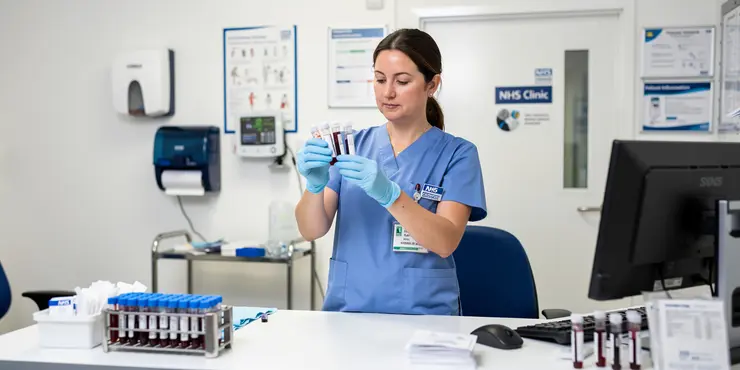
What other viruses are tested for in blood donations?
Relevance: 32%
-

Who is at risk for severe illness from West Nile Virus?
Relevance: 32%
Overview of Marburg Virus Disease
Marburg virus disease (MVD) is a severe viral hemorrhagic fever in humans caused by the Marburg virus, a member of the Filoviridae family. It is rare but highly lethal, with mortality rates ranging from 24% to 88% in past outbreaks. Early diagnosis is crucial for patient management and outbreak control.
Initial Clinical Assessment
Diagnosis of Marburg virus disease begins with an assessment of the patient’s clinical symptoms, along with a detailed history of recent travel or exposure to potential sources of infection such as caves or mines inhabited by fruit bats, which are natural hosts of the virus. Symptoms typically appear 2 to 21 days post-exposure and may include high fever, severe headache, muscle aches, vomiting, diarrhea, and unexplained bleeding. These symptoms often resemble other infectious diseases, making laboratory tests essential for confirmation.
Laboratory Testing
Confirmatory diagnosis of Marburg virus disease involves laboratory testing of blood or tissue samples. These tests must be conducted in specialized laboratories with appropriate biosafety measures due to the infectious nature of the virus. In the UK, this requires collaboration with high-containment facilities.
Polymerase Chain Reaction (PCR)
Reverse transcription-polymerase chain reaction (RT-PCR) is the most commonly used laboratory method for diagnosing Marburg virus. This technique detects the presence of viral RNA in patient samples, allowing for early detection even before antibodies are produced. PCR tests are highly sensitive and specific and offer rapid results, which are crucial for timely intervention.
Serological Tests
Serological tests are used to detect antibodies against the Marburg virus in a patient’s blood. These tests can confirm infection after the immune system has generated a response, typically a few days after onset of symptoms. Enzyme-linked immunosorbent assays (ELISA) are the most used serological tests, providing evidence of recent Marburg virus exposure or infection.
Antigen Detection
Antigen detection tests serve as an alternative diagnostic method, identifying viral proteins in blood or tissue samples. Although not as commonly used as PCR, they can supplement PCR and serological tests to enhance diagnostic accuracy, especially in resource-limited settings.
Electron Microscopy
For cases where more detailed diagnostic evaluation is needed, electron microscopy can be employed to visualize the virus particles in tissue samples. While not routinely used due to the complexity and cost, it provides a definitive visualization of the virus.
Conclusion
Accurate and rapid diagnosis of Marburg virus disease is critical for controlling outbreaks and initiating appropriate public health responses. In the UK, stringent laboratory safety procedures and international cooperation are essential to managing and diagnosing potential cases of this deadly disease effectively. Continued advancements in diagnostic technology will further improve early detection and response capabilities.
Overview of Marburg Virus Disease
Marburg virus disease, or MVD, is a very serious illness. It is caused by a virus called Marburg. This virus is part of a group called Filoviridae. Marburg disease is rare but can be deadly. In past outbreaks, many people have died from it. If someone has Marburg disease, it's important to know quickly. This helps keep the person safe and stops the disease from spreading.
Initial Clinical Assessment
To find out if someone has Marburg disease, doctors look at how the person is feeling. They also ask where the person has been. Marburg virus can be found in places where fruit bats live, like caves or mines. If someone has been to these places, they might get sick. Signs of Marburg disease show up 2 to 21 days after being near the virus. These signs include a high fever, bad headaches, sore muscles, throwing up, diarrhea, and bleeding. These problems can look like other diseases, so doctors need special tests to be sure.
Laboratory Testing
To be sure someone has Marburg virus, doctors test blood or tissue. These tests need to be done in special labs that are very safe. In the UK, these labs work with special safety rules to handle the virus.
Polymerase Chain Reaction (PCR)
A test called RT-PCR helps find the virus in blood. This test can find the virus even before the immune system fights it. PCR tests are very good at showing if the virus is there and give quick results. Fast results help doctors start treating the disease right away.
Serological Tests
Serological tests look for the immune system's response to the virus. These tests check for things called antibodies in the blood. Antibodies are made by the body to fight the virus. A test called ELISA is often used to check for these antibodies. This helps show if someone has had the virus recently.
Antigen Detection
Antigen detection tests check for pieces of the virus in blood or tissue. While not used as often as PCR, they can help confirm if the virus is there. These tests are useful in places that might not have many resources.
Electron Microscopy
Sometimes, doctors need to see the virus in detail. They use a tool called electron microscopy for this. This special tool can show the virus in tissue samples. It is not used all the time because it is complex and costly, but it gives a clear picture of the virus.
Conclusion
Finding Marburg virus quickly and correctly is very important. This helps control the disease and take the right steps to protect people. In the UK, there are strict rules for labs when testing for this virus. Working with other countries is also important to find and manage cases. New technology will help us find the virus even sooner and keep people safer.
Frequently Asked Questions
What is the first step in diagnosing Marburg virus disease?
The first step is evaluating the patient's symptoms and recent travel or exposure history.
What laboratory tests are used to confirm Marburg virus infection?
Laboratory tests include PCR (polymerase chain reaction) assay and ELISA (enzyme-linked immunosorbent assay) for viral RNA and antibodies.
Can Marburg virus disease be diagnosed based on symptoms alone?
No, diagnosis cannot be confirmed based solely on symptoms, as they are similar to other infectious diseases.
How is Marburg virus detected in a laboratory?
The virus can be detected in blood and tissue samples using PCR and virus isolation techniques.
Why is PCR important for diagnosing Marburg virus?
PCR is important because it can amplify small amounts of viral RNA to detectable levels, confirming the presence of the virus.
How soon can Marburg virus be detected after infection?
The virus can often be detected within a few days of the onset of symptoms using PCR.
Is antibody testing useful in the early stages of Marburg infection?
Antibody testing is less useful in the early stages because antibodies may not be present yet; it is more useful later to confirm exposure.
What role do serological tests play in diagnosing Marburg virus?
Serological tests detect antibodies in the blood, which can indicate a current or past infection.
Can Marburg virus disease be misdiagnosed?
Yes, it can be misdiagnosed as it shares symptoms with other diseases like Ebola, malaria, or typhoid.
What sample types are needed for Marburg virus testing?
Blood samples are primarily used, but saliva or urine samples might also be tested for the virus.
Who conducts testing for Marburg virus disease?
Testing is usually conducted in specialized laboratories equipped to handle contagious pathogens.
How is virus isolation performed in diagnosing Marburg virus?
Virus isolation involves growing the virus from a patient's specimen in a laboratory setting to confirm infection.
Why is laboratory confirmation crucial for Marburg diagnosis?
Laboratory confirmation is crucial to distinguish Marburg virus from other diseases with similar symptoms.
Are there any rapid diagnostic tests for Marburg virus?
Research is ongoing, but currently no widely available rapid diagnostic tests for Marburg virus are confirmed active.
Is imaging used to diagnose Marburg virus disease?
Imaging helps assess complications, but it cannot diagnose the virus, which requires laboratory tests.
What precautions are needed when collecting samples for Marburg testing?
Strict biosecurity measures are required to prevent exposure to the virus during sample collection.
Can co-infections complicate Marburg virus diagnosis?
Yes, co-infections with other pathogens can complicate the diagnosis and require additional testing.
How long do results from Marburg virus tests typically take?
PCR results can take several hours to a day, while serological tests may take longer depending on the lab.
What are the challenges in diagnosing Marburg virus in resource-limited settings?
Challenges include lack of specialized labs, trained personnel, and reliable transport for samples.
Is there a role for public health surveillance in diagnosing Marburg virus?
Yes, public health surveillance helps identify outbreaks and emphasizes the necessity for diagnostic testing.
How do doctors find out if someone has Marburg virus disease?
First, the doctor checks if the person feels sick and where they have been recently.
What tests check for Marburg virus?
Doctors can do special tests to find out if someone has the Marburg virus. These tests look at the blood and other body fluids.
Here are some tools that can help understand:
- Ask a doctor or nurse for help.
- Use pictures to help explain.
- Listen to information read aloud.
Lab tests help doctors find viruses. These tests are called PCR and ELISA. PCR looks for virus pieces called RNA. ELISA looks for special virus fighters called antibodies.
Can doctors tell if a person has Marburg virus disease just by looking at symptoms?
No, you can't know for sure if someone is sick just by looking at their symptoms. This is because the symptoms can be the same as other illnesses.
How do scientists find the Marburg virus in a lab?
Scientists use special tests to find the Marburg virus. Here are some steps they take:
- Sample: They collect a sample of blood or other body fluids.
- Look for virus: They use machines to look for the virus in the sample.
- Check results: They check the results to see if the virus is there.
If you want to understand more, you can:
- Use pictures or videos to learn about it.
- Ask someone to explain it to you.
- Use apps that read text out loud.
Doctors can find the virus in blood and tissue samples. They use a test called PCR and another method to find the virus.
Why do we use PCR to find the Marburg virus?
PCR is important because it helps us find small amounts of a virus by making them bigger. This way, we can see if the virus is there.
When can we find Marburg virus after getting sick?
You can find the virus in the body a few days after someone feels sick, using a test called PCR.
Can we use antibody tests at the start of a Marburg infection?
When people get sick with Marburg, their bodies make something called antibodies to fight the virus. But at the very start, these antibodies might not show up yet. So, testing for them early may not always help.
If you need help with reading, you can:
- Ask someone to read the text with you.
- Use an app that reads text out loud.
- Break the text into smaller parts and read slowly.
Antibody tests don't work well at the start because your body might not make antibodies right away. They work better later to show if you have been around the virus.
How do blood tests help find Marburg virus?
Blood tests check for the Marburg virus in your blood. This helps doctors know if you have the virus.
Here are some helpful tips:
- Ask a doctor if you are worried about the virus.
- Use pictures to understand information better.
- Talk with someone about your worries.
Serological tests look for antibodies in the blood. Antibodies are special proteins that can show if someone has or had an infection.
Can doctors think Marburg virus is something else?
Yes, it can be confused with other sicknesses because it looks like Ebola, malaria, or typhoid.
What samples are needed to test for Marburg virus?
To test for Marburg virus, doctors need samples from the person who might be sick. These samples can be blood, urine, or saliva (spit).
Helpful tips:
- Ask a family member or friend to help read or explain the information.
- Look at pictures or videos online that explain the testing process.
- Make a list of questions you might have and ask a doctor or nurse.
Doctors usually test blood to check for the virus. But they can also test spit or pee to find it.
Who tests for Marburg virus?
Testing is done in special labs. These labs are ready to deal with germs that can make people sick.
How do doctors find the Marburg virus in the body?
Doctors use a special test to look for the virus. They take a small sample from a person’s body, like blood. Then, they check this sample in a lab to see if the virus is there.
It’s important to use clear steps so doctors know for sure if someone has the virus. They use special tools and follow certain rules to make sure they do it right.
If you want to learn more, you can try watching videos or ask someone to help you understand better.
Virus isolation means taking a sample from a person and trying to make the virus grow in a lab. This helps doctors know if a person is sick with the virus.
Tips: You can use apps that read text out loud to help understand the words. Pictures and videos can also help make things clearer.
Why is it important to test for Marburg virus in a lab?
Testing in a lab helps doctors know for sure if someone has the Marburg virus.
We need a lab test to make sure it is Marburg virus and not another illness that looks the same.
Can we quickly test for Marburg virus?
People are still working hard to make a quick test for Marburg virus. But right now, we don't have a test that is ready for everyone to use.
Do doctors use pictures to find out if someone has Marburg virus?
Pictures from machines like X-rays can help doctors see problems. But these pictures cannot tell if a person has the virus. To know for sure, doctors need to do special tests in a lab.
What to Do When Taking Samples for Marburg Testing
When you collect samples for Marburg testing, you need to be very careful.
Here are some things to keep safe:
- Wear gloves and masks to protect yourself.
- Make sure your tools are clean and safe.
- Keep the samples in special containers.
- Wash your hands after you finish.
It's really important to be careful so no one gets sick.
We need to be very careful to stop people from catching the virus when we collect samples. Here are some tools and ideas that can help:
- Use protective clothing like gloves and masks.
- Make sure everyone helping is trained and knows what to do.
- Wash hands often with soap and water.
- Keep the place clean and tidy.
Can having other illnesses make it harder to find Marburg virus?
Yes, having more than one infection at the same time can make it harder for doctors to figure out what's wrong. They might need to do more tests to be sure.
How long does it take to get Marburg virus test results?
It usually takes a few days to get the results from a Marburg virus test. Doctors and nurses will tell you when the results are ready. If you find waiting hard, try using a clock or calendar to count the days. You can also ask someone you trust to help you remember when the results will come.
It can take a few hours or up to a day to get results from a PCR test. A serological test might take longer, depending on the lab.
If you need help reading, you can ask someone to read with you or use a text-to-speech tool. It can also help to read slowly and take breaks if you need to.
What makes it hard to find Marburg virus in places with few resources?
Problems include not having special labs, trained people, and good ways to move samples.
Can public health checks help find Marburg virus?
Public health checks are when doctors and nurses watch and check for illnesses in people. They do this to find out if lots of people are getting a certain sickness.
Marburg virus is a very serious illness. It makes people very sick. Finding it quickly can help stop it from spreading.
Public health checks can help by spotting Marburg virus early. When they see signs of the virus, doctors can help quickly.
Helpful tool: Talking to a doctor if you have questions about health is a good idea. There are also health websites that give easy-to-read information.
Yes, public health checks help find health problems. They show why it's important to test for illnesses.
Useful Links
This website offers general information and is not a substitute for professional advice.
Always seek guidance from qualified professionals.
If you have any medical concerns or need urgent help, contact a healthcare professional or emergency services immediately.
Some of this content was generated with AI assistance. We’ve done our best to keep it accurate, helpful, and human-friendly.
- Ergsy carfully checks the information in the videos we provide here.
- Videos shown by Youtube after a video has completed, have NOT been reviewed by ERGSY.
- To view, click the arrow in centre of video.
- Most of the videos you find here will have subtitles and/or closed captions available.
- You may need to turn these on, and choose your preferred language.
- Go to the video you'd like to watch.
- If closed captions (CC) are available, settings will be visible on the bottom right of the video player.
- To turn on Captions, click settings .
- To turn off Captions, click settings again.
More Items From Ergsy search
-

How is Marburg virus disease diagnosed?
Relevance: 100%
-

What are the symptoms of Marburg virus disease?
Relevance: 94%
-

What is the typical progression of Marburg virus disease?
Relevance: 91%
-

What is the Marburg Virus?
Relevance: 91%
-

Can Marburg virus disease be prevented?
Relevance: 91%
-

What is the mortality rate of Marburg virus disease?
Relevance: 90%
-

Can Marburg virus disease recur after recovery?
Relevance: 88%
-

Is the Marburg virus related to the Ebola virus?
Relevance: 85%
-

Is there a vaccine for Marburg virus?
Relevance: 80%
-

What research is being done on the Marburg virus?
Relevance: 79%
-

Where was the Marburg virus first discovered?
Relevance: 78%
-

How is the Marburg virus transmitted?
Relevance: 78%
-

How long is the incubation period for the Marburg virus?
Relevance: 73%
-

How do health authorities confirm a Marburg virus outbreak?
Relevance: 73%
-

Are there any countries at higher risk for Marburg virus outbreaks?
Relevance: 72%
-

Has Marburg virus caused any major outbreaks?
Relevance: 72%
-

What measures are being taken to control Marburg virus outbreaks?
Relevance: 70%
-

How can healthcare workers protect themselves from Marburg virus infection?
Relevance: 66%
-

What is the Ebola virus?
Relevance: 42%
-

How is Chikungunya virus infection diagnosed?
Relevance: 42%
-

What are the treatment options for Marburg virus disease?
Relevance: 41%
-

How is Nipah Virus diagnosed?
Relevance: 41%
-

What is the life expectancy after a motor neurone disease diagnosis?
Relevance: 40%
-

Are there treatments for West Nile Virus?
Relevance: 39%
-

What is Chikungunya virus infection?
Relevance: 37%
-

Is there a test for West Nile Virus?
Relevance: 35%
-

Can Nipah Virus cause neurological complications?
Relevance: 35%
-

What is Nipah Virus?
Relevance: 34%
-

Is there a cure for Nipah Virus?
Relevance: 34%
-

What are the symptoms of Nipah Virus infection?
Relevance: 33%
-

What is the mortality rate of Nipah Virus infection?
Relevance: 33%
-

What diseases are spread by mosquitos in the UK in 2025?
Relevance: 33%
-

How do health officials monitor West Nile Virus?
Relevance: 33%
-

What is West Nile Virus?
Relevance: 33%
-

Are UK mosquitoes capable of transmitting Zika virus?
Relevance: 33%
-

What global organizations are involved in Nipah Virus research?
Relevance: 33%
-

Is there a vaccine for West Nile Virus?
Relevance: 32%
-

What are the symptoms of Zika virus?
Relevance: 32%
-

What other viruses are tested for in blood donations?
Relevance: 32%
-

Who is at risk for severe illness from West Nile Virus?
Relevance: 32%


